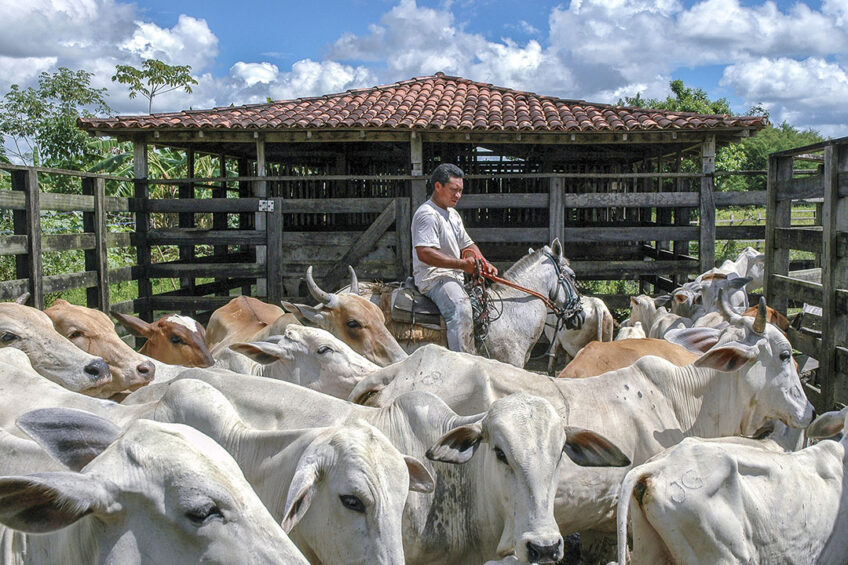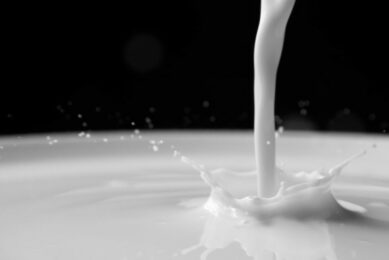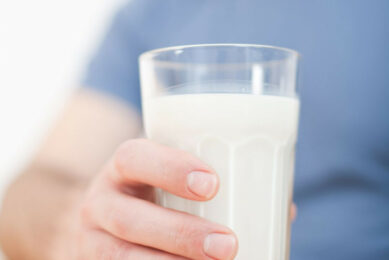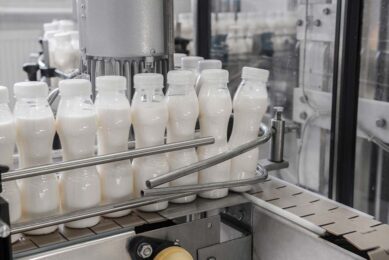Brazilian dairy: On the road to recovery

Brazil is a huge country with a large farming community. But its dairy export position is weak. This is the result of political and economic factors.
2018 was a difficult year in which Brazil faced political uncertainty, the truck driver strike and the economic crisis that has affected Brazil since 2014. This also had an effect on the already ‘somewhat’ weak dairy export position of the country. Nevertheless, several experts forecast better times for the Brazilian dairy sector. According to a recent report over Q4 2018, Dutch agrofood banker writes that milk production has grown in Argentina, Brazil and Uruguay in Q4, and farmers will start 2019 in a better position than they started 2018. Demand will remain subdued in Argentina, but a gradual recovery is expected for Brazil, with imports set to recover. Also farmgate prices for Brazilian dairy farmers are likely to start higher in 2019 than in 2018. This is good news for Brazil, known as a strong exporter of grains, beef, poultry and pigs. It is about time that the dairy sector is stepping up as well.

Many farmers, low productivity
According to Paulo do Carmo Mantins, chief at Embrapa Dairy, one of the issues for Brazilian dairy farmers has been the fixed milk prices that the Brazilian government maintained between the 70s and 90s. Embrapa is the Brazilian Agricultural Research Corporation and part of the Brazilian Ministry of Agriculture, Livestock, and Food Supply. “2 decades of fixed milk prices hindered most of the dairy producers to develop their production systems. Although the volumes produced were not bad, Brazil was the world’s 5th main milk importer in the1980s. Last year, the Brazilian dairy export dropped with double digits, reaching ‘only’ US$ 58.2 million,” Mr do Carmo Mantins explains. He does see progress and is convinced that a new generation of dairy producers are doing things differently and more professionally than the older generation dairy farmers. Today, the Brazilian dairy sector has over 20 million cows, and a production of around 36 billion litres. The milk is produced by a whopping 900,000 dairy farmers, of which a large proportion is made up of small-scale farmers. While big companies and cooperatives have adopted new technologies and practices, a large amount of small farmers could not. Some cooperatives and companies have the same productivity level as New Zealand, European or US dairy firms. At the same time, the Brazilian average milk production per cow per year is stuck at around 2,000 litres.
Becoming more competitive
Mr do Carmo Mantins explains that the southern regions of Brazil (Rio Grande do Sul, Santa Catarina and Paraná) and the southeastern states (São Paulo and Minas Gerais) are home to dairy farms that are highly efficient and produce high quality milk. These are the typical Brazilian dairy regions. “With these type of modern farms and cooperatives we can be a competitive player on the world market. Having cooperatives is an important prerequisite to being competitive, which is also seen in big dairy countries like New Zealand and the US where cooperatives produce more than 80% of the domestic milk production. I see huge potential to export more cheeses to countries like Argentina, Chile, Russia and United States. The Brazilian government is strongly supporting technological development in the dairy sector and is also very much focused on milk quality. Recently, the Ministry of Agriculture, Livestock and Supply (Mapa, from Portuguese) released several new rules for producers regarding production systems, patterns of quality and inspection,” explains Mr do Carmo Mantins.

The high demanding rules for milk exports will mean that some farmers will cease farming, because they cannot comply. “The farmers that can step up production and quality will also have the challenge to further optimise the production costs to become more competitive, says Marcelo Martins, executive director from Viva Lácteos, Brazilians dairy sector organisation. Viva Lácteos, in partnership with the government, is carrying out several initiatives to expand market access and promote trade. “The activities are focused on consolidation of Brazilian dairy products and gaining ground in a large number of countries. Huge potential lies in exporting high quality dairy products to countries like Saudi Arabia, Bolivia, Colombia, Chile, United States, Paraguay, Peru and Russia. Also potential lies in regaining ground for commodity products such as milk powder, says Mr Martins. According to him, this can be done by providing technical assistance for producers and farmers, more investment in infrastructure and the simplification of taxes amongst other things. The work of Viva Lacteos already paid off. 12 dairy companies have significantly increased their exports. In 2016, the group exported a value of US$ 13.67 million (8% of the total). In 2018, the share increased to 53%, with a value of US$ 30.84 million.
New government plans
Brazil is increasing its level of dairy farming. It has the natural resources and workforce. Coming back to the Rabobank report, the authors of the report write that overall, higher milk prices and slightly lower feed costs will incentivise farmers to increase output in the first half of 2019. Rabobank expects that milk production at farm level will increase further, and already showed an increase by 1% in 2018. Another important factor is the political situation. The new government started on the 1st January 2019 and, despite some concern about worrying or misunderstood statements from the new president Jair Bolsonaro and his team, feed and livestock producers are still relatively positive that the coming 4 years will see improvements for animal production and trade. The optimistic outlook for the economy in 2019 will largely depend on how the new government will stabilise the fiscal crisis this year and how positive global business and the economy, and hence the dairy sector, will be in the coming months.










